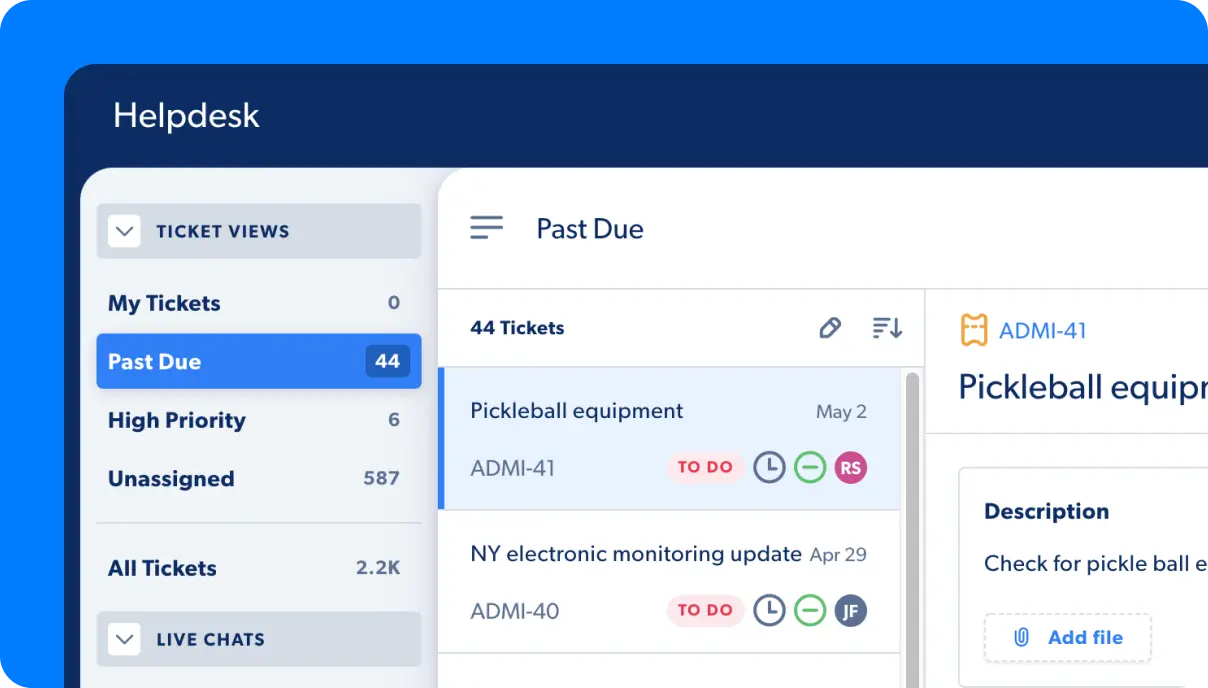Are you looking to create a practical online knowledge base for your business but unsure where to start? Sure, the process can seem daunting. But we’ve outlined five best practices to help you develop a comprehensive and robust knowledge base solution. These tips will help you create a knowledge base that meets the needs of your users and makes it easier for them to access the information they need. So, let’s dive in and start with the basics:

What is an online knowledge base?
An online knowledge base is a hub of information businesses can use to help answer common questions. It supports customers and improves overall productivity. In other words, it’s a digital encyclopedia for your company, filled to the brim with articles, tutorials, guides, and videos.
An online knowledge base empowers customers to self-serve, reducing the need for customer service support while answering frequently asked questions. But it’s not just for the customers: internal teams can use the knowledge base too. For example, employees can educate themselves or onboard new team members. It’s the ultimate shortcut for anyone looking to provide or access tacit knowledge. As your business grows, an online knowledge base becomes increasingly valuable, making it one of the essential components for companies in today’s digital age.

Automate Your Work
Capacity’s enterprise AI chatbot can help:
- Answer FAQs anytime, anywhere
- Find relevant documents within seconds
- Give surveys and collect feedback
Top benefits of an online knowledge base for businesses
In a world where everything is accessible online, it’s surprising that many companies still rely on outdated methods of managing information. Enter the online knowledge base – a treasure trove of answers, data, and solutions available at the click of a button. When a customer has a problem, their first thought isn’t to pick-up the phone and call you. Instead, they want to find the answers online themselves via an FAQ article, how-to video or an online knowledge base. And sure, physical manuals and documentation have their place. But let’s face it – they’re about as efficient as a horse-drawn carriage in rush hour traffic.
With an online knowledge base, you can give your customers the information they need when they need it. No more frustrated phone calls, no more “I’ll have to get back to you on that.” Not to mention the benefits for your team. With all the answers in one place, you can work more efficiently, collaborate more effectively, and spend less time answering the same questions.

Let’s take a deeper look at some of the top benefits of an online knowledge base:
1. Improve customer support:
An online knowledge base can provide quick and efficient answers to common customer inquiries, freeing up time for your customer service team.
2. Reduce costs:
Self-service solutions have several benefits, such as lower staffing costs and reduced training expenses.
3. Foster collaboration:
A knowledge base lets employees access information from colleagues and become familiar with best practices in various departments or areas of expertise.
4. Enhance brand identity & reputation:
With an online knowledge base, you can present your company’s values, goals, and philosophies in an easily digestible format, helping customers better understand who you are and what makes you unique.
5. Increase customer retention:
An online knowledge base is a great way to keep customers engaged with your company, providing them with the resources they need to succeed.

Online knowledge base best practices
1. Start with the basics
Before you jump in head-first, take some time to define your company’s goals and objectives. This will help ensure you create relevant and helpful content for your customers.
Setting company goals is the backbone of any successful endeavor, especially when creating an online knowledge base. Sure, you can throw together a bunch of articles and FAQs, slap some pretty colors on your website, and call it a day. But without clear objectives in mind, you’re driving blindfolded. Take the time to define your goals before diving into online knowledge base solutions. Whether it’s improving customer satisfaction, reducing support costs, or increasing employee productivity, having a firm grasp on what you hope to achieve will help you make informed decisions along the way. Plus, as a bonus, you won’t end up with a knowledge base that’s more convoluted than a Game of Thrones plotline.
2. Create an organized structure
Establishing a logical structure for your knowledge base makes it easier for customers (and employees) to find information quickly. Consider organizing articles into topics, categories, or even tag clouds to make navigation easier.
Establishing an organized structure is crucial before dumping all of your information into an online knowledge base solution. Without an efficient layout, your valuable content could quickly become lost and tangled in a web of confusion. So, take some time to sketch out a plan and create clear categories. Trust us – your customers (and your sanity) will thank you.
3. Keep it updated
As your business grows, so should your knowledge base. It’s vital to keep content up-to-date by regularly reviewing old articles and adding new ones as needed. You can also use analytics tools to measure user engagement and identify areas of improvement.
Support automation platforms like Capacity can automatically update old data with new, relevant information. When a user asks a question the AI chatbot doesn’t know, it will instantly create a ticket and add the latest information to the online knowledge base within seconds.
4. Make it searchable
An online knowledge base is only effective if customers can easily find their desired answers. To ensure users can quickly access the information they need, ensure your knowledge base is equipped with a robust search system.
As much as we’d all love to have a photographic memory or be able to remember every detail we’ve ever read, unfortunately, most of us are not blessed with that superpower. That’s where a searchable online knowledge base comes in handy. Imagine having a vast collection of information at your fingertips but with no way to sift through it efficiently. Making your online knowledge base searchable not only saves you time and frustration but also ensures that your valuable information is easily accessible to others who may need it.
5. Create a visually appealing format
Nobody wants to read a wall of text – break up long articles with images, videos, and other visuals to keep customers engaged and make the content more digestible.
A well-designed and aesthetically pleasing format keeps your readers engaged and interested in your content. You want your user experience to feel like a walk in the park, not a trek through a dense jungle.
When followed correctly, these online knowledge base best practices can help you create an effective knowledge base solution that your employees (and customers) will love. With the right knowledge base software, you can reduce costs, improve customer service, and drive better business outcomes.
AI online knowledge base platforms like Capacity can help answer over 90% of repetitive questions from internal teams and external customers.
Learn more and get started with Capacity today!













































